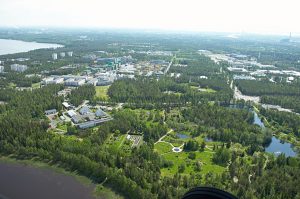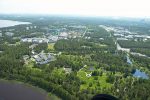
The Center for Ubiquitous Computing has joined project CUTLER- Coastal Urban developmenT through the LEnses of Resiliency, financed by the Horizon 2020 EU Framework Programme for Research and Innovation, under the Societal Challenges Pilar, and in response to call Co-Creation-06-2017: Policy-development in the age of big data: data-driven policy-making, policy-modelling and policy-implementation.
CUTLER’s consortium joins a multidisciplinary team composed by 15 academic and non-academic partners, from all across Europe. The project will last 36 months, starting from January 2018. Lead by the Center for Technology Hellas (CERTH), the project aims to generate and provide evidence-based solutions for decision making on pressing policy challenges related to the coastal urban development, by using Big Data analytics methods. Oulu leads WP3 dealing with data collection, management and protection.
Coastal urban development incorporates a wide range of development activities that are taking place as a result of the water element existing in the fabric of the city. This element may have different forms (i.e. bay, a river, or a brook) but in almost all cases the surrounding area constitutes what maybe considered as the heart of the city. Every city that incorporates the water-element in its fabric is confronted with the fundamental requirement of developing policies for driving development in the surrounding area, while balancing between: a) economic growth; b) protection of the environmental; and c) safeguarding social cohesion. This requirement is tightly connected with the concept of Urban Resilience, which is the capacity of individuals, communities, businesses and systems within a city to survive, adapt and grow no matter what chronic stresses and acute shocks they experience. In developing policies that add value to the resilience of a city, we shift the existing paradigm of policy making, which is largely based on intuition, towards an evidence-driven approach enabled by big data. Our attention is placed on policies related to the water element. Our basis is the sensing infrastructures installed in the cities offering demographic data, statistical information, sensor readings and user contributed content forming the big data layer. Methods for big data analytics are used to measure the economic activity, assess the environmental impact and evaluate the social consequences. The extracted pieces of evidence are used to inform, advice, monitor, evaluate and revise the decisions made by policy planners.
For more information please visit the project’s official homepage: https://www.cutler-h2020.eu
PI: Jukka Riekki


